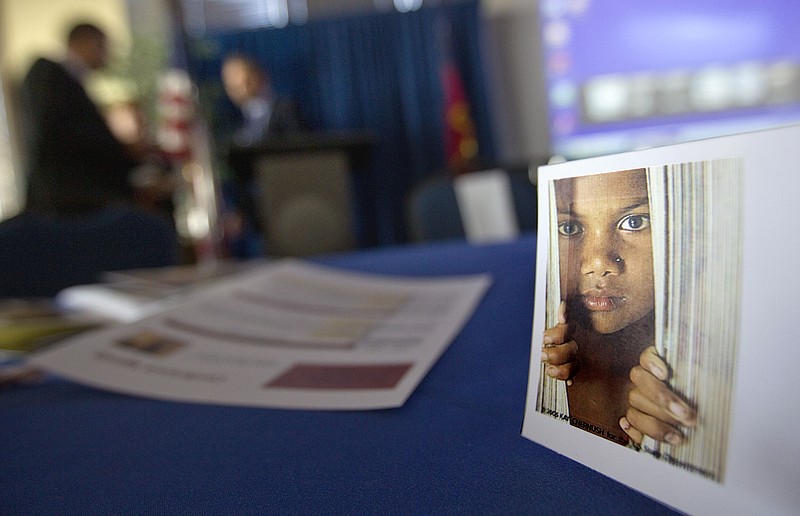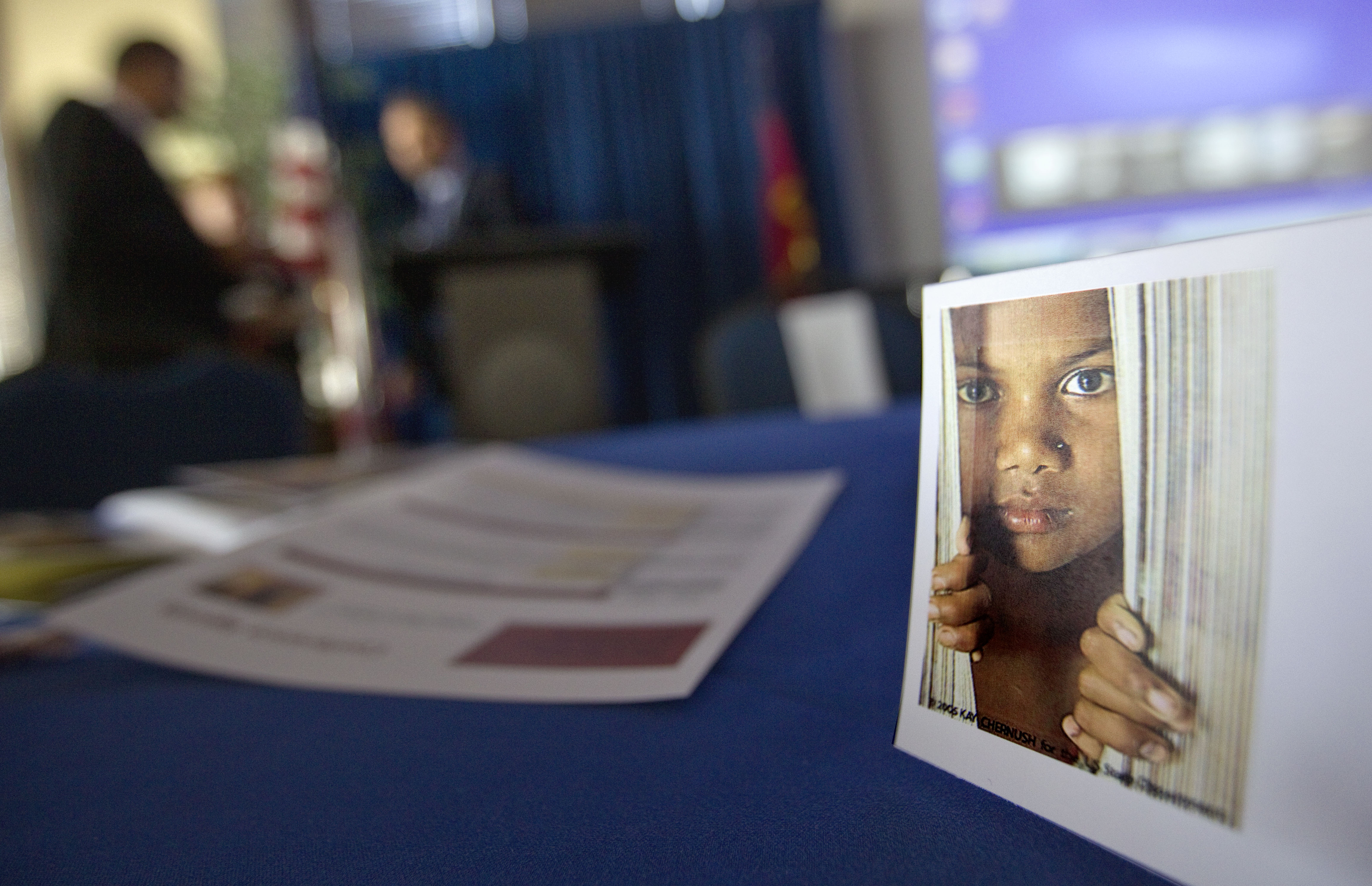Read more
* Cook: Tennessee's role in ending slavery* Cook: Bob Corker and the fight to end slavery
After two months leading the Senate Foreign Relations Committee, U.S. Sen Bob Corker's wasting no time setting big goals.
Next on his agenda: End slavery worldwide.
This week, Corker plans to introduce legislation experts have called "the most important thing to happen to the modern abolition movement."
If passed, Corker's bill, drafted with Democratic New Jersey Sen. Bob Menendez, will seek to create a $1.5 billion international fund fueled by the U.S., foreign nations and private enterprise over the next seven years. The fund will take aim at freeing the estimated 30 million present-day slaves across the planet by bolstering law enforcement in slave-trading hubs.
Holly Burkhalter, vice president of government affairs for the International Justice Mission, said the bill could deal a serious blow to the sex and labor slave trade.
"As a lifelong human rights activist, this is a big deal," Burkhalter said. "The bill would be the most important thing to happen to the modern abolition movement."
The International Justice Mission is an nonprofit that works to strengthen enforcement against sex and labor slavery and other violent crimes against the poor and to provide services to help victims establish new lives.
Modern slave traders conscript children and adults to work in brick kilns, textile mills and brothels across the world -- namely in places where the law can be bought or easily ignored.
"You can do a lot to fight crime in the city of Chattanooga, or the city of Calcutta, but if the bad guys who prey on the weak and vulnerable or the poor don't fear the police, then they will not stop," Burkhalter said.
The IJM works to set up special units at police departments across the globe specifically geared to ferreting out and punishing slavers.
Corker said Wednesday he started work on the bill after he started getting a number of "small asks" for support from anti-trafficking groups such as IJM at his congressional office.
"They were coming to us with small, incremental things that we were happy to support. But we saw there was something much bolder that needed to be accomplished here," Corker said.
He also said it was important that the U.S. take a leadership role against slavery, and that's what the bill aims to do.
The bill would create a nonprofit, the End Slavery Initiative, and it calls for the U.S. State Department to plant a $250 million seed in the fund. The newly created organization would then call for a 2-for-1 match from other foreign nations and $250 million from the private sector. Once that $1 billion nut is made, the nonprofit would immediately create a plan to raise another $500 million from the private sector.
Anti-slavery organizations across the world could apply for funding. The nonprofit's board and CEO would select programs that show measurable success while demonstrating best practices and great need.
The model is similar to the President's Emergency Plan for AIDS Relief started in 2003 under President George W. Bush. Since that program's start it has provided HIV testing and counseling to more than 56.7 million people.
From 2004 to 2007, the number of HIV-related deaths in sub-Saharan Africa fell by 10.5 percent, according a 2009 study in the Annals of Internal Medicine.
A major focus of the End Slavery Initiative will be funding groups that strengthen enforcement of anti-trafficking crimes.
Burkhalter said in many cases slavery is a crime of opportunity. Those engaged in human trade do so because it's easy money with little cost, she said. Raise the stakes, and business dries up.
Much of the End Slavery Initiative's focus will be in countries that get low rankings on the U.S. State Department's annual Trafficking in Persons Report, those on the verge of being rated tier 3, the lowest rating for reporting and enforcing human trafficking crimes.
But anti-trafficking groups stateside are still heartened by the upcoming legislation.
Jerry Redman, CEO of Second Life Chattanooga, said even if the fund won't go toward combating domestic slavery, it will do wonders for the cause.
"I think anytime that you shine a light on the issue, whether you are looking at it with a non-U.S. lens or looking at it here locally, it is a good thing," Redman said. "With someone like Sen. Corker getting out in front and taking the lead I think signals to the rest of the world and domestically that the U.S. is going to step out and lead the way."
Burkhalter said Friday she had high expectations for the bill, and wants to see solid results.
"We want to see an emphasis on going after the bad guys. We want to see lots and lots of rescue and helping people be restored with quality care," she said. "We really just want to make slavery a thing of the past."
Contact staff writer Louie Brogdon at lbrog don@timesfreepress.com, @glbrogdoniv on Twitter or at 423-757-6481.

